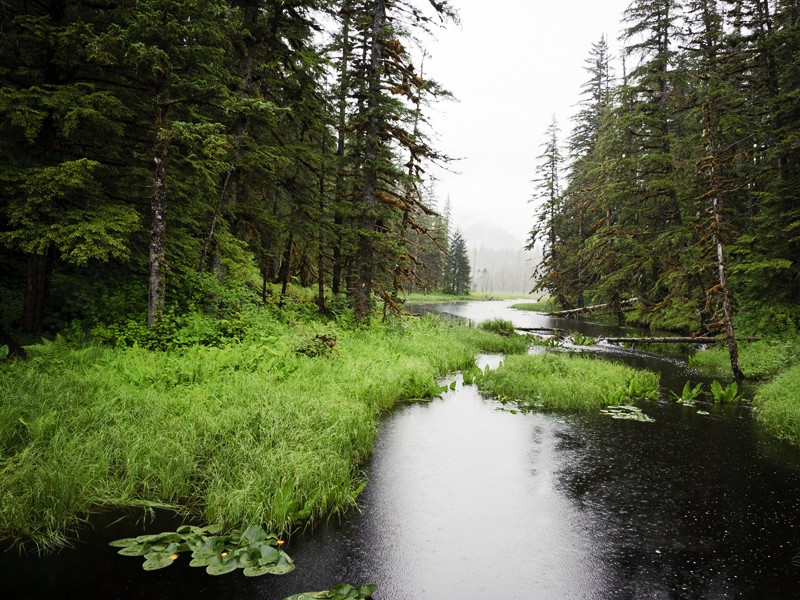
Wednesday
After defending Brazil strongman Jair Bolsonaro for his assault on Brazil’s rain forests, Donald Trump is now going after our own, with Alaska’s Tongass National Forest the latest natural treasure on the chopping block. When hearing such dispiriting environmental news, I often turn to Wendell Berry, who is sure to articulate my outrage while expanding my vision.
According to yesterday’s Washington Post,
President Trump has instructed Agriculture Secretary Sonny Perdue to exempt Alaska’s 16.7-million-acre Tongass National Forest from logging restrictions imposed nearly 20 years ago, according to three people briefed on the issue, after privately discussing the matter with the state’s governor aboard Air Force One.
The move would affect more than half of the world’s largest intact temperate rainforest, opening it to potential logging, energy and mining projects.
It’s unclear whether the move would be a net economic benefit. While it will aid the logging and mining industries, it will hammer tourism and sports fishing. According to the article,
About 40 percent of wild salmon that make their way down the West Coast spawn in the Tongass: The Forest Service estimates that the salmon industry generates $986 million annually. Returning salmon bring nutrients that sustain forest growth, while intact stands of trees keep streams cool and trap sediment.
[Trout Unlimited president Chris] Wood, who worked on the Clinton rule while at the Forest Service, said that in recent years, agency officials have “realized the golden goose is the salmon, not the trees.”
“They need to keep the trees standing in order to keep the fish in the creeks,” Wood said.
Berry points out that, when we attack the environment, we despoil “our very bodies,” experiencing a grief that “drives us half insane, and more than half.” How can we “destroy that which we were given in trust” he asks. “How will we bear it?”
It is the destruction of the world
in our own lives
that drives us half insane, and more than half.
To destroy that which we were given
in trust: how will we bear it?
It is our own bodies that we give
to be broken,
our bodies existing before and after us
in clod and cloud, worm and tree,
that we, driving or driven, despise
in our greed to live, our haste
to die. To have lost, wantonly,
the ancient forests, the vast grasslands
in our madness, the presence
in our very bodies of our grief.
Madness is the right word for it. Our bodies, which are part of the cycle of life, feel at their core the wanton loss of nature’s gifts.

